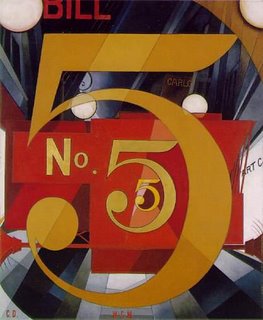
Birds and insects make things, nests mostly, but little beyond that; and animals seldom make anything at all, except beavers who block up waterways with debris to make dams. As builders, animals are mostly slackers. And until roughly 5,000 years ago people weren't much better than the average felt-lined beaver or scarlet pismire or scissor-tailed fly-catcher. Hunter/gatherer people didn't do a lot of construction, didn't make much. They made stone tools and temporary shelters, and they did make pictograms and petroglyphs. It's the latter that separates men from termites, I think. In terms of zero to one hunter/gatherer Man is significant. Beyond that, not much.
The beginnings of agriculture turned man into a beast who had to make things other than temporary shelters and stone tools. Agriculture, in a real sense, pushed man to become a genuine maker, even a poiete, the Greek word meaning a maker, a poet. Yes, Language Man and Pictogram man and Religion Man is a far remove from ants and birds, but it's agriculture that begins the long and perhaps unending move toward greatness. Without the clear sequential narrative of something like the Epic of Gilgamesh or the Iliad Man is not really much more than a biological curiousity adrift in the darkness of space. It's real making of the mind as something universal and both private and public that makes Man something great, and that is poetry.
To know of and speak of Gilgamesh and to pass on Gilgamesh to others is a step into reality unlike that of anything else in our known universe. To make, to poetize, is to create privacy and publicity, that which no other creature can do, and that Man didn't do well till he became the Maker himself. "He" is not me, my privacy being not him, my publicity being something akin and shared. To organise this Other narrative to share with others, that is poetry, making. It comes from Ur.
When every man owns his own plot, as it were, he is himself in his own mind and in the eyes of others who can see themselves as atomic in their own minds' eyes. When publicity is possible it is so because it is comprised of privacies. The conduit is poetry. Religion is a binding; and poetry, the base of religion, is a made thing of individuals that binds. When that religious binding is ossified and policed and atrophied, as it is in the poligion of Islam and the ideologies of the 18th century that so badly inform us today, then man is no longer a maker but is a thing of the hive, a flock peice, higher than a predatory beast in the wild but not the thing of greatness that man is meant to be. The rote-driven slave makes nothing at all. when the one poem, the great narrative is frozen in tradition and fear of change and growth, then the life of the mind of man is wrecked and Man is diminished and made worthless, a mere parody of the poet he could be. Man is then a farm animal.
The Poetry of Man is rightly the moral of the story, writes Dag. To make the metaphor of the Moral as universal as math, surpassing Numbers, that is some great thing. No one can do so or think so if ones privacy is trapped in a publicity of rote and misoneism. It is the fulfillment of man to create the path to the paths of the moral. That makes us, and anythikng short of it, any obstruction of that search for the universal metaphor of the Moral, is a crime against Humans forever.
Come writers and critics
Who prophesize with your pen
And keep your eyes wide
The chance won't come again
And don't speak too soon
For the wheel's still in spin
And there's no tellin' who
That it's namin'.
For the loser now
Will be later to win
For the times they are a-changin'.
Bob Dylan
Join us this evening at the library. We'll talk about many things; VPL, atrium, 7-9:00 pm in front of Blenz.



3 comments:
Linked you dag.
I'm awakened from my slumber and the Anvil is clanging louder than ever.
Hope all is well.
Foehammer
Hi, long time no see. I think it's close to a year now that I've been banned from Jihad Watch, and being banned from my daily round of long commentary I don't get involved like I did for the close to two years I was there. I still go, and I am aware of those who write regularly even if I don't comment.
My best to all.
I'm not sure you can give the credit to agriculture, strictly speaking. The aboriginals on the coast here had quite a developed mythology, though not yet reaching the point of Gilgamesh which is taking the leap into a secular, mortal man-centered story. The key, it seems, is the development of a signficant economic surplus, which was possible here thanks to the rich salmon fishery. Once you have a surplus, he who can control it gains freedom in developing the ritual (and complementary myths) by which the surplus is distributed or destroyed, as in the potlatch economy, ritual, art and mythology here on the coast. Practically speaking, of course, agriculture is necessary in most places for this kind of surplus, but it is the ethics necessary for allowing surplus wealth production and distribution, and the freedom this entails, that is the key force, not the logic of agricultural techniques, per se.
Post a Comment